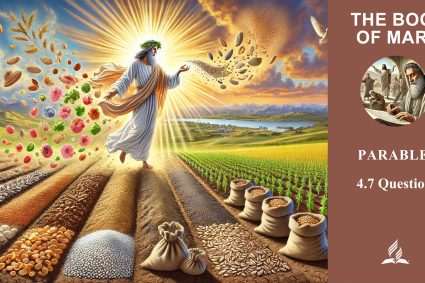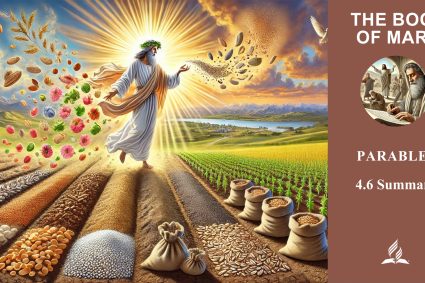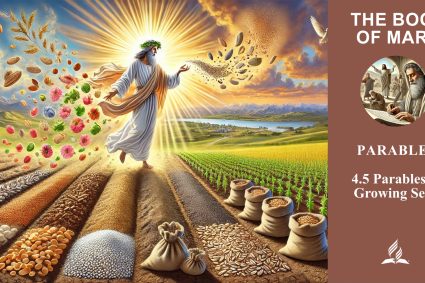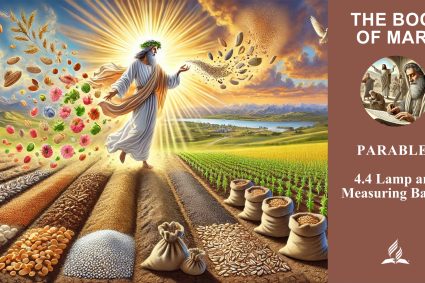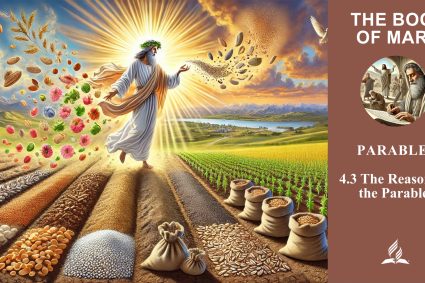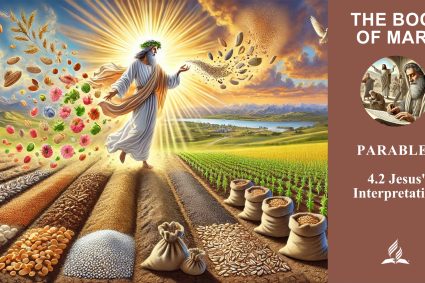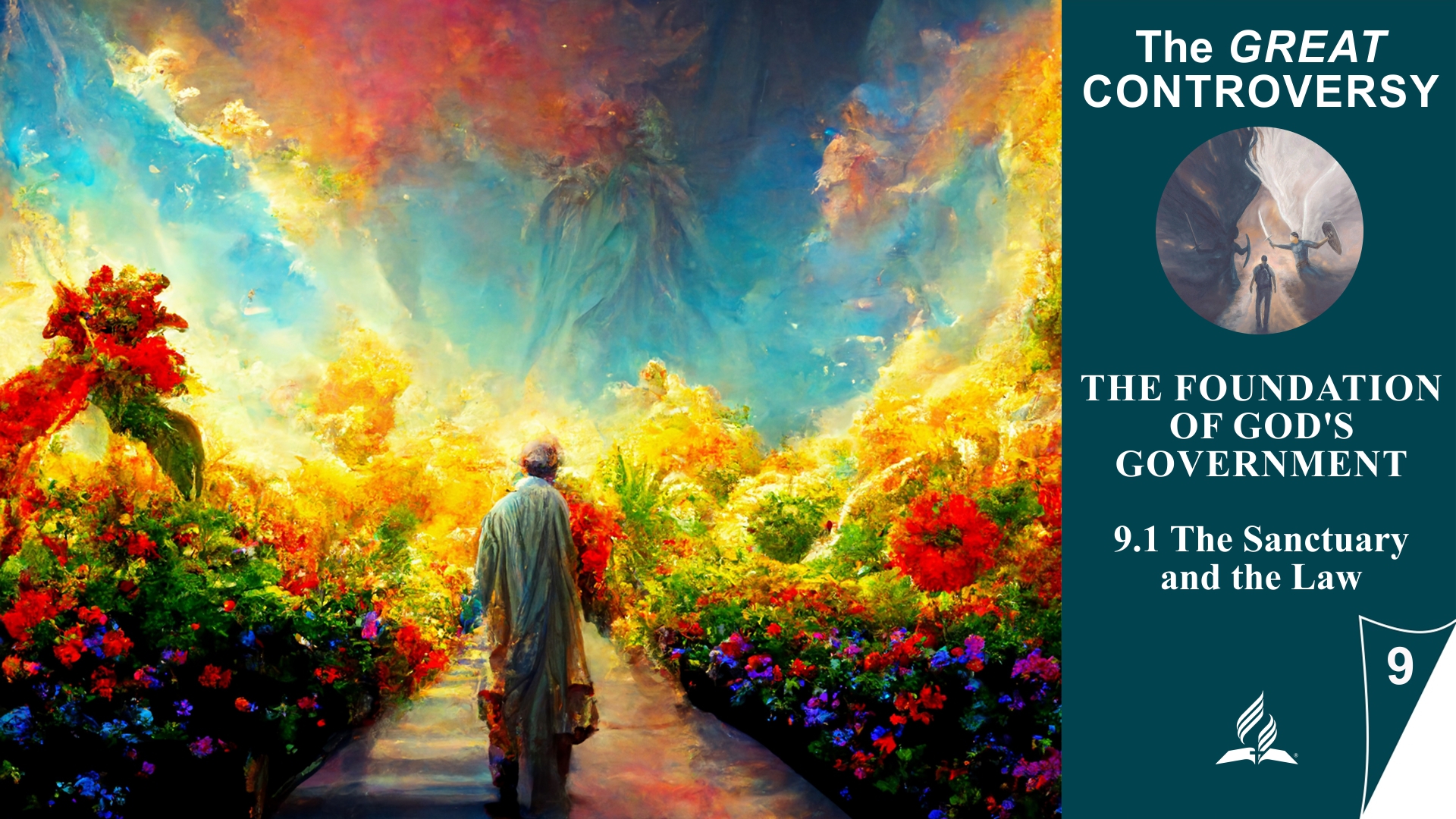

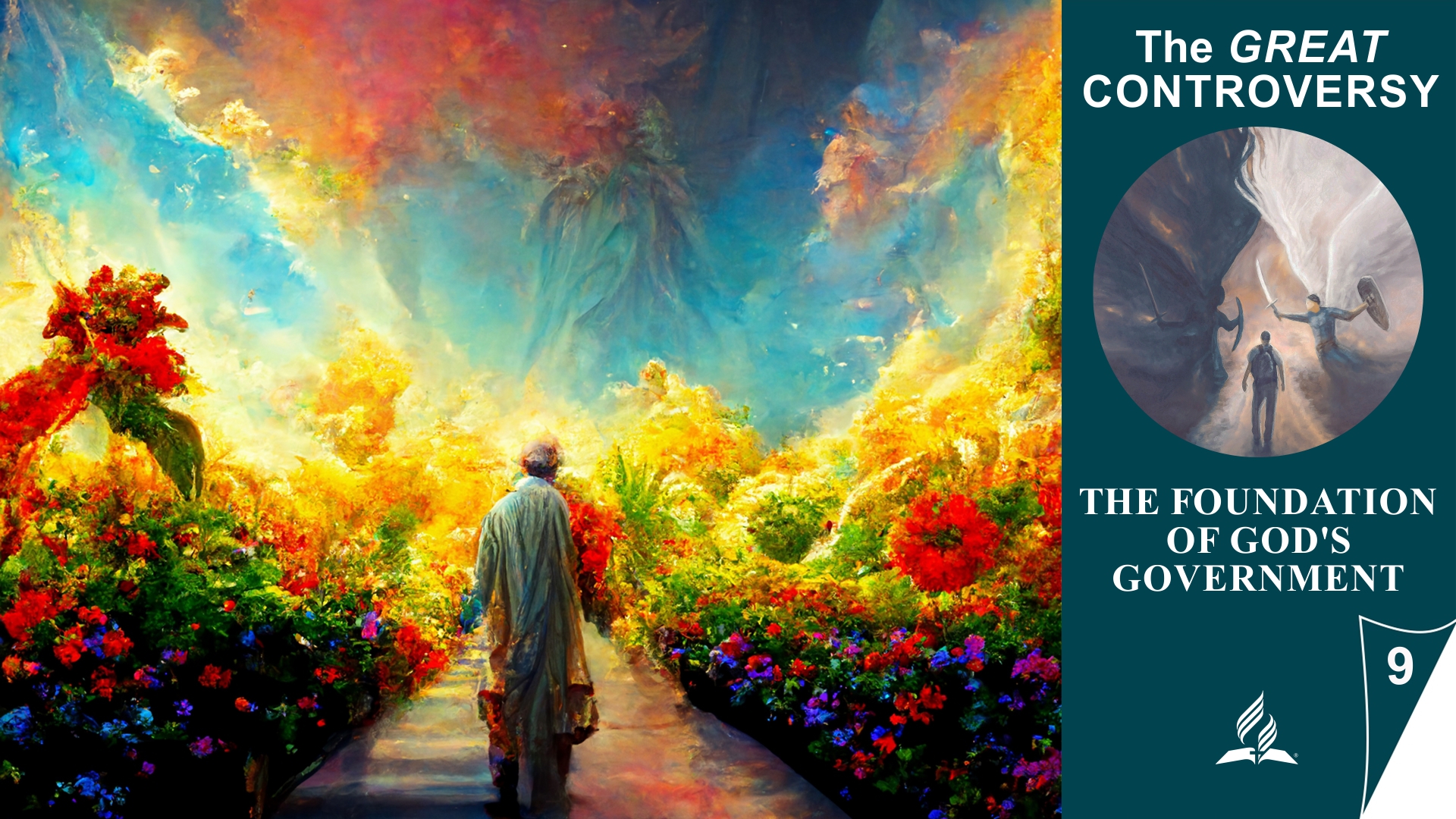
Lesson 9.The Foundation of God’s Government
The Fundamentals of Faith: Law, Sabbath, and End-Time Conflict
In the ninth lesson of our study series, we delve into the fundamental principles that form the foundation of God’s rule and sovereignty. This lesson is titled “The Foundation of God’s Government” and takes a deep look at the principles of worship and loyalty to the Creator.
In Revelation, particularly in Chapter 14, we find an urgent message urging us to make a clear decision – the choice between true worship of the Creator and the worship of false gods or systems. This decision has not only theological but also practical implications for our daily lives and our faith.
In our introduction, we will illuminate the central themes of this lesson: the significance of worshiping the Creator, the warning against false gods, and the connection between our everyday lives and our faith. By understanding these principles, we can delve deeper into the truth and align our lives accordingly to honor God and follow His will.

9.1 The Sanctuary and the Law
The Sanctuary and the Immutable Law of God
Read Revelation 11:19; Exodus 25:16; 31:18, and Revelation 12:17. According to these verses, what was inside the Ark of the Covenant in the Most Holy Place of the sanctuary?
According to the mentioned verses, the Ark of the Covenant in the Most Holy Place of the sanctuary was a central place of great significance. According to the scriptures, it contained the Ten Commandments of God, written on stone tablets. These symbolized the immutable and sacred law of God. The golden cover of the Ark of the Covenant, called the mercy seat, was the place where blood was sprinkled to cleanse sins and to manifest God’s presence.
Revelation describes how the apostle John saw the heavenly sanctuary and the Ark of the Covenant became visible. This depiction illustrates the continuity and the sacred nature of the divine law represented in the heavenly sanctuary.
The comments emphasize the significance of God’s law, especially regarding the Sabbath, and argue that despite the cross and redemption through Christ, it continues to endure. This underscores the theological perspective that God’s law was not abolished but rather plays a crucial role in God’s plan of redemption.
Overall, this reflection highlights the importance of the Ark of the Covenant and the divine law within the framework of the sanctuary and emphasizes the theological doctrine of the continuity and sanctity of God’s law.
Think about the Sabbath, which comes to us every week at 1600 km/h – without exception. What does this tell us about the significance of the doctrine of creation? What other doctrine has such a strong and recurring reminder function?
The Sabbath, returning with remarkable regularity every week, offers a fascinating perspective on the significance of the doctrine of creation. Through its unchanging recurrence, unaffected by human actions, the Sabbath continuously reminds us of God’s act of creation. It symbolizes God’s sovereignty over time and space, as well as His role as the Creator and ruler of the universe.
This regular reminder function of the Sabbath emphasizes the importance of the doctrine of creation as a fundamental theological truth. The creation story in the book of Genesis serves as the foundation of faith and reminds us that God is the origin and source of all life.
No other doctrine has such a strong and recurring reminder function as the doctrine of creation, symbolized by the Sabbath. While other beliefs and doctrines convey important principles and truths, the doctrine of creation offers a unique perspective on the relationship between God and His creation, as well as the fundamental principles of order and time.
Through the Sabbath, we are reminded week by week that we are part of a universe created by God and protected by His care. This regular reminder invites us to reflect on our role as stewards of creation and to deepen our relationship with God and His creation.

The connection between the Sabbath as a regular reminder of the doctrine of creation and the sanctuary with the immutable law of God lies in their common emphasis on God’s sovereignty, holiness, and constancy. Both the Sabbath and the Ten Commandments, preserved in the Ark of the Covenant in the sanctuary, symbolize God’s unchanging character and His authority over creation.
The Sabbath reminds us week by week of God’s act of creation and His rule over time and space. Similarly, the Ten Commandments of God in the sanctuary illustrate the holiness and immutability of God’s law. These teachings remind us that God reigns as Creator and Lawgiver over all aspects of our lives.
The regular recurrence of the Sabbath and the emphasis on the immutable law of God in the sanctuary have a strong and recurring reminder function in our daily lives and faith. They invite us to deepen our relationship with God by being aware of His sovereignty, holiness, and constancy. By observing the Sabbath and respecting the Ten Commandments as expressions of divine wisdom and love, we can strengthen our connection to God and recognize His greatness and glory in our lives.

God’s immutable law and the regular recurrence of the Sabbath remind us that we are part of a divinely created and protected universe, invited to deepen our relationship with God and His creation.
Visited 49 times, 1 visit(s) today

